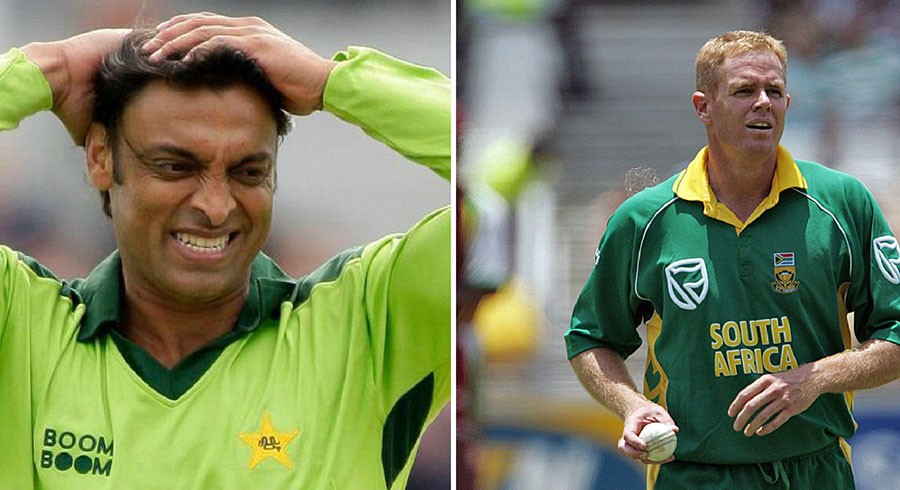Former South Africa captain spoke about the difficulties which came with facing Shoaib Akhtar
 PHOTO: AP/AFP
PHOTO: AP/AFP
Former South Africa captain Shaun Pollock has revealed an interesting story regarding Pakistan’s legendary pacer, Shoaib Akhtar, and how he made life difficult for the batsmen of his time.
Pollock, who picked 421 Test wickets at an average of 23.11 in 108 matches, spoke about the impact of fast-bowling on different surfaces while comparing Akhtar and Australia’s former speedster Brett Lee.
“Playing fast-bowlers on different surfaces made a huge difference,” said Pollock while speaking on Sky Sports Cricket Podcast. “When playing Brett Lee in Perth, Australia, although he was blitz, we felt we could hang back or go down when he bowled short.”
“But when facing Shoaib Akhtar, when we played him in the sub-continent, we could not do that because of lack of bounce. Also there was a chance we could get a yorker or a beamer at some stage. When he got his inswinging yorkers wrong, they used to come hip and chest high,” he added.
The 46-year-old also revealed how he and his teammates used to wait for the captain’s signal, regarding the end of Akhtar’s spell, during matches in order to breathe a sigh of relief.
"When batting we used to watch the Pakistan captain to see how many overs Shoaib Akhtar had left in his spell. When he'd get the signal that he was out of the attack, we would think, Yes!" he said.
ALSO READ: Miandad was ready to play for Pakistan while coaching: Inzamam
The former right-arm pacer also spoke about the change in attitude of fast-bowlers as soon as the speed gun was introduced.
“The speed gun brought a different dimension to fast-bowling because all of a sudden now you had something through which you could register how quick you were on the field,” he said. “You always feared the fast-bowlers you played against and we had Shoaib Akhtar and Brett Lee at that time. They were the ones trying to gun for 160 [kph].”
He also heaped praise on Pakistan’s other fast-bowling greats, Wasim Akram and Waqar Younis, while naming some of the all-time best pacers.
"In my era, you had great combinations like Wasim Akram and Waqar Younis for Pakistan and Curtly Ambrose and Courtney Walsh for West Indies,” he concluded.